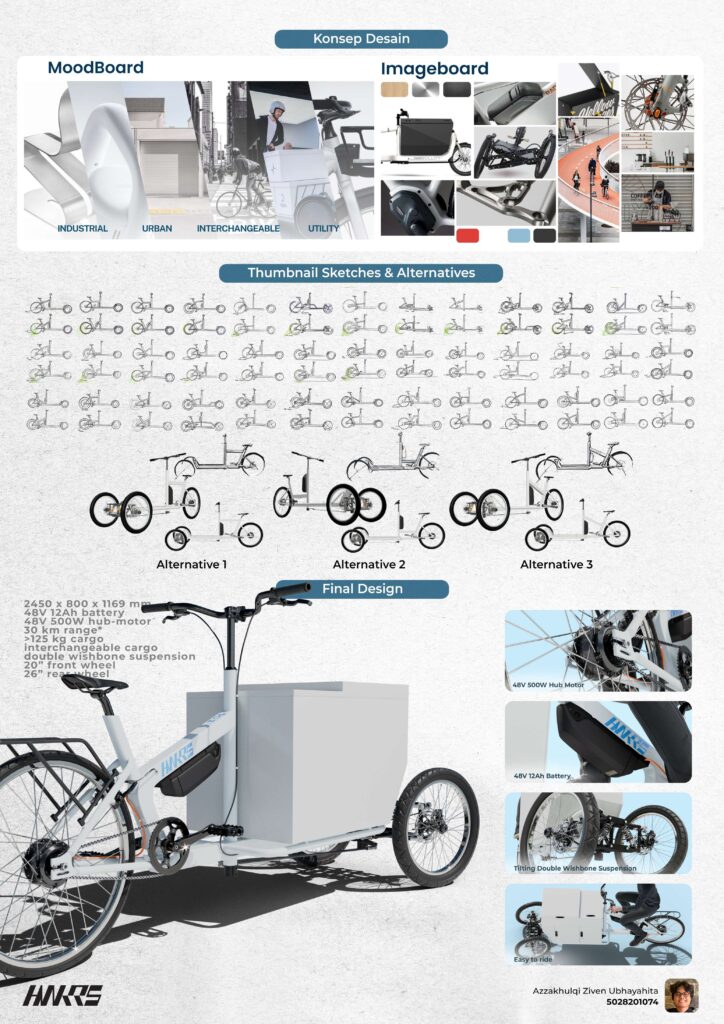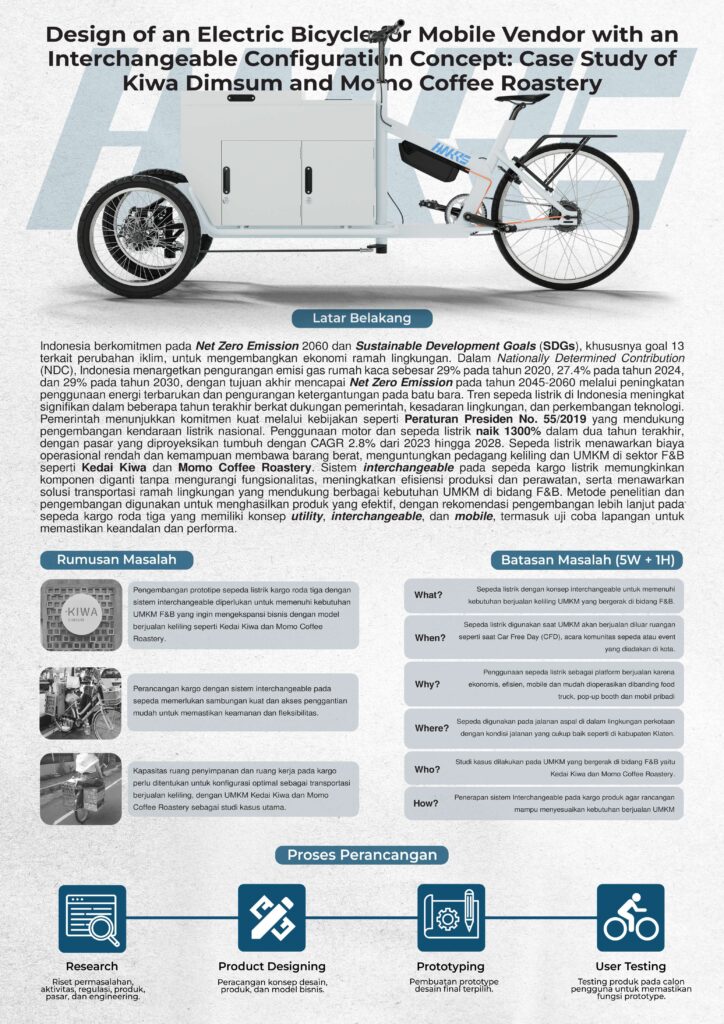Through its commitment to achieving Net Zero Emissions by 2060 and the Sustainable Development Goals (SDGs), particularly Goal 13 on climate action, Indonesia is dedicated to developing a sustainable economy. In its Nationally Determined Contribution (NDC), Indonesia aims to reduce greenhouse gas emissions by 29% in 2020, 27.4% in 2024, and 29% by 2030. The ultimate objective is to reach Net Zero Emissions between 2045 and 2060 by increasing the use of renewable energy, decreasing reliance on coal, and supporting the development of low-carbon technologies. The trend of electric bicycles in Indonesia has seen significant growth in recent years, driven by government support for infrastructure, environmental awareness, and technological advancements. The Indonesian government has shown strong commitment to the development of electric vehicles, including electric bicycles and motorcycles, through policies such as Presidential Regulation No. 55/2019, which provides a legal framework for the development and production of national electric vehicles.The use of electric motorcycles and bicycles has increased thirteenfold in the past two years, with the market projected to grow at a compound annual growth rate (CAGR) of 2.8% from 2023 to 2028. Electric bicycles offer lower operational costs compared to conventional motor vehicles and can carry heavy loads, which is particularly beneficial for mobile vendors and small and medium enterprises (SMEs) in the food and beverage (F&B) sector, such as Kedai Kiwa and Momo Coffee Roastery. The interchangeable system in electric cargo bicycles allows components to be replaced without compromising functionality, enhancing production and maintenance efficiency. This system simplifies operations and provides an environmentally friendly transportation solution that can meet the diverse needs of SMEs in the F&B sector. Research and development methods are employed to produce specific products and test their effectiveness. A three-wheeled cargo bicycle with a concept of utility, interchangeability, and mobility is recommended for further development, including comprehensive field trials to ensure reliability and performance.


